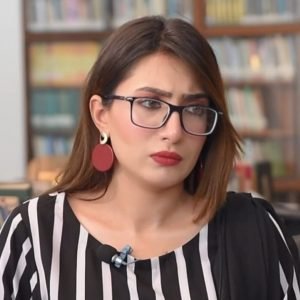
By Anmol Sheraz
Pakistan Institute for Peace Studies (PIPS) arranged a two-day national workshop to educate youth on interfaith harmony.
The training pursued the young participants from different universities of KP to become critically aware to deal with prejudices and stereotypes. The PIPS team along with guest speakers engaged the youth in a healthy discussion on faith and religion at personal, cultural and social level whilst cultivating them with the doctrines of peacebuilding abilities and interfaith harmony. The workshop highlighted important tools for youth in building an equitable, just and free progressive society.
The speakers invited to enlighten and educate youth on different critical subjects were, Dr Qibla Ayaz, Dr Rasheed Ahmed, Haroon Sarab Diyal, Riffat Orakzai, Muhammad Amir Rana, Zafarullah Khan, Sabook Syed, Shagufta Malik, Anmol Sheraz and Azaz Syed.

Dr, Qibla Ayaz (Chairman Council of Islamic Ideology) said that Pakistan is a country which is rich with religious and cultural diversity whereas, many people are still alien to the fact that Pakistan is home to plenty of Zoroastrians, Jews and few known Muslim sects. He added that culture and religion are interlinked in Pakistan at many levels.
While Dr. Rasheed Ahmed (Professor of Islamic Studies at the University of Peshawar), said that it is calamitous as the Pakistani society endures to manifest symptoms of religious intolerance and fascism. Whereas, he counselled the youth to advance the ability of questioning and critical thinking and anticipate why Pakistan lacks the skill to appreciate its massive religious and cultural diversities.

Adding to this Haroon Sarab Diyal (Chairman, All Hindu Rights Movement) elucidated to the youngsters that how Islam universally endorsed harmony and peace amongst the followers of different religions. Similarly, he quoted the father of the nation, Quaid-e-Azam by saying that non-Muslim citizens are equal citizens of the state, and that faith should not be a criterion for judging citizens’ loyalty or services to the country.
Furthermore, the participants were educated about misperceptions by Muhammad Amir Rana (Director PIPS). He said that social behaviours are often shaped by perceptions rather than facts. He explained how students could base their opinions on facts by studying books and expanding their mental horizons.
Moreover, Zafarullah Khan (Constitutionalist) discussed democracy, constitution, fundamental rights and parliament with the participants. He briefly explained the university students about the basic rights of every citizen and aware them about the duties of state.

Whereas, Sabook Syed (Senior Journalist) made the participants familiar with the effective practices by journalists and activists, at social media. He added that the social media gave opportunities for common men for two way communication with the opinion and policymakers.
Besides this, Shagufta Malik (MPA-ANP) advised youth specifically young women to not to give up on their dreams and face the challenges. She said, that hailing from a culturally conservative area, it is observed that cases of harassment and rape of women are underreported, but she expressed positivity that plenty of the conservative rural areas culture is undergoing optimist social change and the people are welcoming women to education.
Equally another successful young woman Anmol Sheraz (Journalist) told the participants that she faced several challenges from her familial circles when she chose to pursue journalism as a career. And say no to those who attempt to impose their views and plans on women. She believed that many things which used to be a social taboo regarding women are being discussed openly. She has been through ups and downs in her career, but her Christian faith has never been an issue for working as a journalist in KP.
Meanwhile, Azaz Syed (Investigative Journalist) interacted with the participants on developing the habits of positive thinking and learn to question things. He educated the university students about the “Right to Information” law that allows citizens to gain access to state records.
PIPS is a research and advocacy think-tank, it is an initiative of leading Pakistani scholars, researchers and journalists. PIPS organise extensive research and analysis of social, political and religious conflicts which have a direct impact on both nation and international security.





